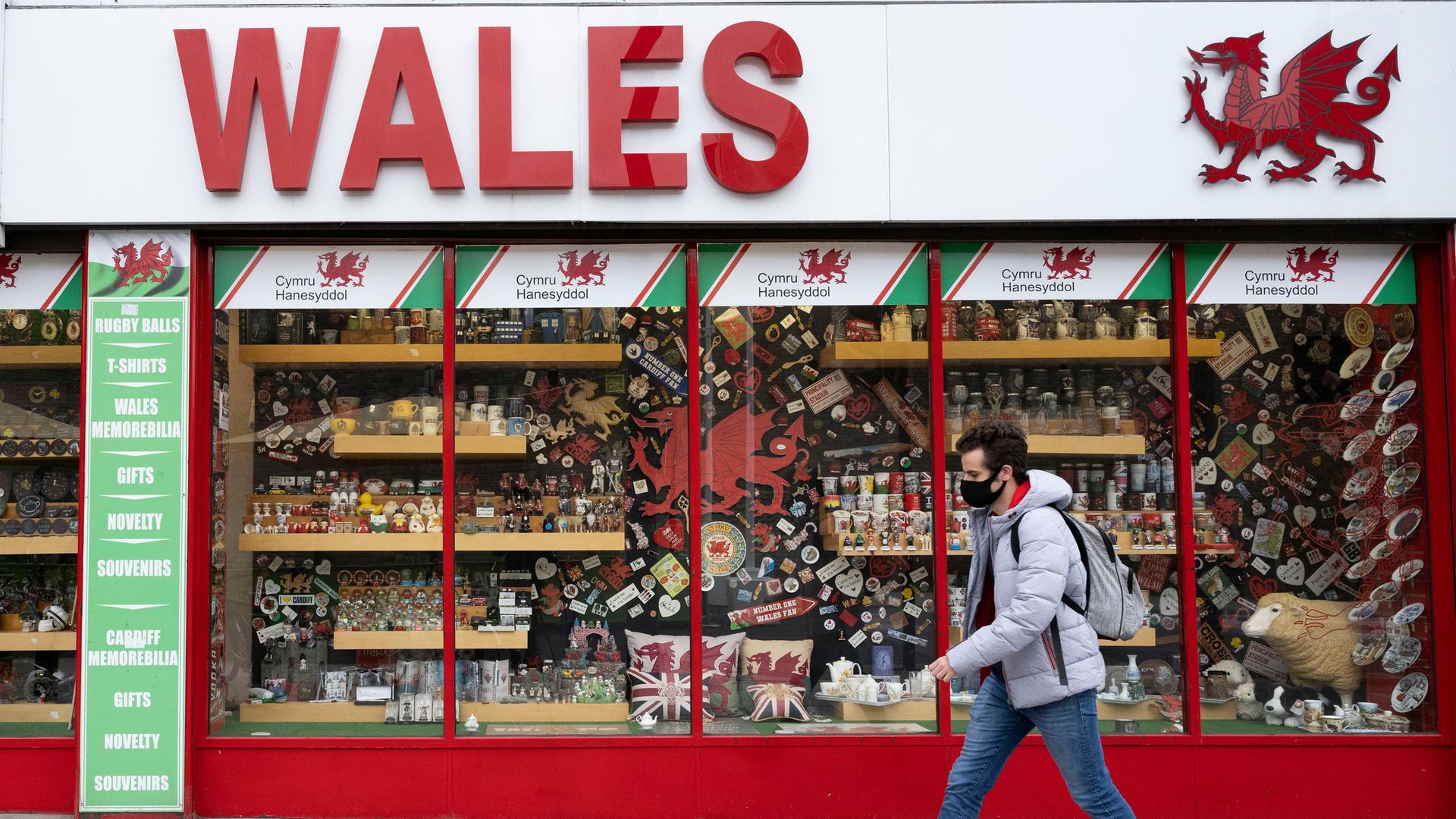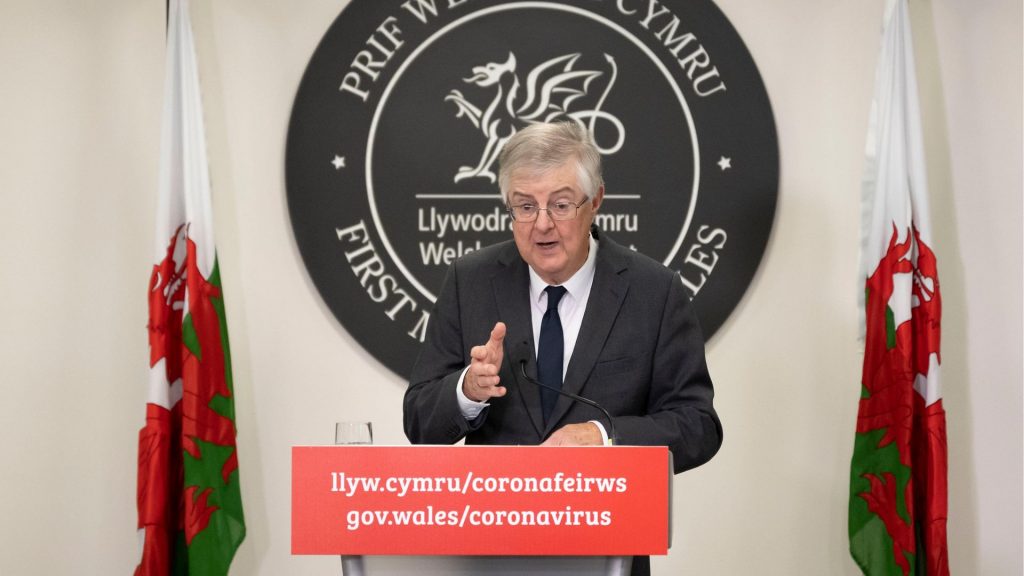
Wales, its former first minister Carwyn Jones was often heard to say, is an old nation but a young democracy.
And it’s true. Unified in the 11th century, Wales only began to accumulate the trappings of modern statehood in 1999. But could it be on the path to something more – a seat at the UN? Last week the leader of the Welsh Conservatives, Paul Davies, told the Senedd, the nation’s spectacular modern parliament, that it was “sleepwalking towards independence”.
The coronavirus, and the differing responses to it across the United Kingdom, has exposed the defects and limitations of the British state. Might it also change the way the Welsh see themselves and how they’re governed?
The question would once have seemed absurd. The Welsh have never had an independence movement on the scale of Scotland. Welsh nationalism has always been cultural, rather than political, rooted in the language and eisteddfodau. Unlike Scotland, which retained most of the institutions of statehood after the Act of Union – its education system, its judiciary – Wales has built its from scratch, starting in 1999.
Not just politically but culturally Wales remains closely attuned with England. It gets its news from London – English newspapers vastly outsell the only national daily, the Western Mail. Geographically, to travel from the north-east to the south-east it’s usually as easy to cross the border and use the M6 and M5 than risk being trapped behind a tractor on the A470.
Welsh devolution was always an afterthought to that in Scotland. Rejected in 1979 with 79.7% against, it squeaked through by fewer than 7,000 votes in 1997.
Beginnings were ominous. Alun Michael, an uncharismatic Tony Blair loyalist was parachuted in as first secretary (as was). The assembly was misguidedly set up as a corporate body, that is, like a local council, with little effective legal division between its executive and legislative roles.
‘The assembly’ became shorthand for both the devolved government and the chamber meant to hold it to account. Allied to this, it had little power and was denigrated as a talking shop.
The path to greater political self-confidence began with Michael’s overthrow and the instalment of Rhodri Morgan, an Old Labour stalwart. He spoke of putting “clear red water” between his government and that at Westminster. Morgan’s politics may not have been those of Blair, but, like with Ken Livingstone in London, Blair recognised a winner.
(Subsequent prime ministers have shown little interest in Wales, other than to patronise it. As he was running for Conservative leader in 2005, I interviewed David Cameron for Wales on Sunday. He told me he had a Welsh neighbour who told him the rugby scores and claimed an unlikely friendship with Cerys Matthews. It transpired they’d once been at the same party.)
As recently as 2005, the Conservatives went into the general election with a manifesto pledge to hold a second referendum on Welsh devolution, with an option to abolish the assembly. But the mood was changing. Morgan’s successor, Jones, changed the name Welsh Assembly Government to Welsh Government to end the ambiguity (the assembly only became the Welsh parliament earlier this year).
And in the successful 2011 referendum on giving the body full law-making powers, all four parties were in favour, including the Conservatives under thoughtful then leader Nick (now Lord) Bourne. The Tories have been less well served by his successors, including the incumbent Davies, a Boris Johnson loyalist.
A clear path can be seen. But it feels like the seven months since the pandemic took hold have had more of an effect on how Wales sees the way it is governed than the preceding 21 years.

Few outside Wales would have heard of Mark Drakeford prior to this year.
Indeed, some in Wales would have struggled to name the donnish first minister. Lacking Morgan’s shambling charm and Jones’ lawyerly authority, Drakeford, perpetually clad in a suit jacket seemingly one size too big, can come across as the disappointed head teacher of a minor public school. But perhaps that’s what the moment needed.
Often lazily described as a Corbynista, Drakeford is from the left of the Labour Party (he was backed for leader by Momentum), but economically rather than culturally – pictures are unlikely to emerge of him being ‘present but not involved’ at a wreath-laying for a terrorist. In that, the former economic adviser to Morgan is probably more like a less abrasive John McDonnell.
And Drakeford and his combative health secretary Vaughan Gething have been the faces the people of Wales have seen on TV over the past seven months. The coronavirus, if nothing else, has shown the people of Wales in technicolour the reality of laws for Wales being made in Wales. And they appear to like it.
The extent of some of the powers have surprised even the people you would have expected to know: when I spoke to Carwyn Jones recently he admitted he didn’t know Wales could impose its own quarantine rules on people arriving from abroad.
There is an irony that, as with Nicola Sturgeon in Scotland, Drakeford’s stock has risen despite both the infection rates and measures being broadly similar to England’s. Wales eased its way out of the initial lockdown more cautiously, keeping non-essential stores, pubs and restaurants closed longer, and has been swifter in imposing local lockdowns and, this week, a ‘firebreak’. But both leaders benefit from not being Boris Johnson. Drakeford is a master of detail and, unlike Johnson, does not over-promise and under-deliver: no “world-beating” claims here. It is a sign of the change in tone that Welsh broadcasters increasingly refer to Matt Hancock as “England’s health secretary”.
Polls and anecdotal evidence show support for independence is rising – the most recent YouGov poll put it at 32%, the highest ever. And crucially, it is decoupling from Plaid Cymru and the language issue. Increasingly Labour voters are becoming, as Plaid leader Adam Price put it when I spoke to him early in lockdown, “indy-curious”. Drakeford himself supports “a successful United Kingdom”, which gives no blank cheque.
Two factors could exacerbate that. Wales voted for Brexit, but as the effects on the country’s manufacturing and agriculture sectors become clear in the coming years, it is inconceivable the anger won’t be directed at the Westminster government which imposed its hardest form, not Cardiff Bay.
And the second is what happens elsewhere. Were Scotland to leave the Union and Ireland to unify, Wales would be the Montenegro to England’s Serbia. And we know how that turns out. Things fall apart. The centre cannot hold.
Arguably the only way to retain the Union is serious constitutional reform. The pandemic has shown that the UK’s asymmetric devolution has not served it well, especially when the UK government and its media cheerleaders have demanded that the Celtic upstarts
should fall in line. That change will not come from the Conservatives. Which leaves Labour. Where does Keir Starmer stand on resolving the UK’s unwritten and lop-sided constitution? We don’t know. Perhaps now would be the time to launch some sort of commission into a federal UK, ahead of the next general election?
Because while support for Welsh independence is still relatively low it is only at the stage Scotland was a decade ago. And it’s only going one way.
Warning: Illegal string offset 'link_id' in /mnt/storage/stage/www/wp-includes/bookmark.php on line 357
Notice: Trying to get property 'link_id' of non-object in /mnt/storage/stage/www/wp-includes/bookmark.php on line 37






